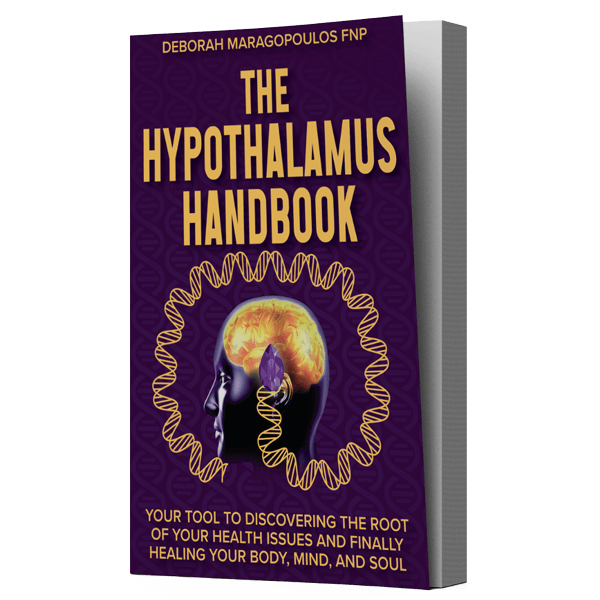So what is the relationship between hypothalamic dysfunction and chronic fatigue syndrome?
Let’s talk about it.
Hypothalamus dysfunction is defined as alterations in hypothalamus function that affect:
- circadian rhythm
- weight management
- metabolism
- hormonal balance
- adrenal function
- thyroid function
- glucose metabolism and insulin resistance
- sleep and circadian rhythm
- temperature control
One of the biggest roles of the hypothalamus is to direct metabolism particularly cellular metabolism and mitochondrial functioning. At the heart of chronic fatigue syndrome also known as myalgic encephalitis is mitochondrial dysfunction.
While the triggers may be toxins, infectious microbes, or nutritional deficits, research is now showing that hypothalamic dysfunction is associated with chronic fatigue syndrome.
One way to diagnose hypothalamus dysfunction is by a cortico-releasing hormone challenge which tests the adequacy of the hypothalamic-pituitary-adrenal axis.
Typically chronic fatigue syndrome patients have mild central adrenal insufficiency yet hydrocortisone supplementation reduces fatigue in very few patients. Suggesting that HPA axis dysfunction may be a physiological adaptation to universal mitochondrial dysfunction.
In my 35 years of clinical experience, all of my chronic fatigue patients show signs of hypothalamic dysfunction.
Supporting their hypothalamus nutraceutically to optimize hypothalamic function, helps correct HPA axis issues, adrenal insufficiency, and increases mitochondrial function which translates to:
- more energy
- less fatigue
- less brain fog
- less pain
- as well as normalization of circadian rhythms and hormonal balancing
By recommending Genesis Gold® with extra Sacred Seven® amino acids for at least a few months for the most severely affected, my chronic fatigue syndrome patients are able to get their lives back.
If you have any questions about CFS and hypothalamus dysfunction, please join us in our Hormone Reboot Training.
You can also learn more in my newest book The Hypothalamus Handbook.




0 Comments